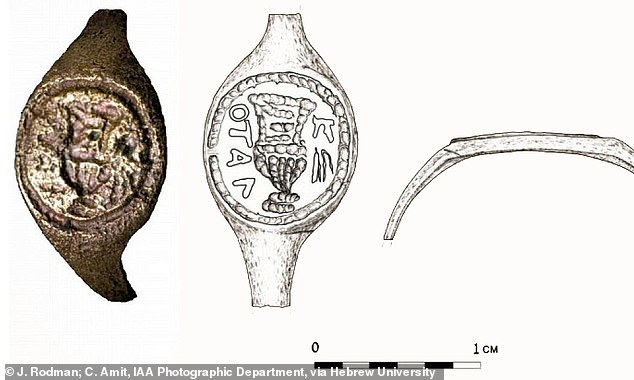A ring discovered 50 years ago has reignited excitement among archaeologists after new research revealed a possible connection to Pontius Pilate, the Roman governor of Judea who tried Jesus.
The 2,000-year-old stamping ring bears the inscription ‘of Pilatus’ in Greek letters and was one of many artefacts found during excavations at Herod’s burial tomb half a century ago.
Professor Gideon Forster from the Hebrew University of Jerusalem discovered the copper ring during a dig in the 1960s but it is only recently that researchers using advanced photography were able to decipher the inscription, reports the New York Times.
The ring, which was also etched with the picture of a wine vessel, would have been used by officials to seal and stamp documents.
The newspaper reports that it is only the second artifact to have been discovered from that period bearing Pilate’s name.
The location of the discovery at Herod’s fortress, near Bethlehem in the West Bank, makes the clue all the more tantalising as Roman officials stationed at Jerusalem may also have been buried at the site.
Professor Danny Schwartz told Haaretz that the name ‘Pilatus’ was not common at the time.
‘I don’t know of any other Pilatus from the period and the ring shows he was a person of stature and wealth,’ he said.
The report, published last week in the Israel Exploration Journal, held back from stating a direct link with Pontius Pilate.
‘We think it implausible that a prefect would have used a simple, all-metal, copper-alloy personal sealing ring with a motif that was already a well-known Jewish motif in Judea before and during his rule,’ the report says.
However, Roi Porat, one of the authors of the report commented to The Times of Israel, ‘But in practice, we have a ring inscribed with the name Pilate and the personal connection just cries out.’







































Discussion about this post